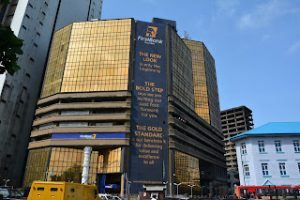
Mr Abioye, who disclosed this at a press briefing held in Lagos Wednesday, noted that the estate is located in Lafiagi, Kwara State.
He revealed that the company was investing in the project comprising a sugar refinery, ethanol plant and other supporting infrastructure to reduce dependence on forex-impacted raw materials.
“The bulk of our raw materials are FX-dependent, which is a major issue. As it stands today, Nigeria is yet to be an industrial agricultural producer of sugarcane, which is a major source of raw material for us.
“We still depend on other countries. One of the things we are working with the government is to accelerate development in sugarcane agriculture. It used to be there,” he said.
He further explained that the BUA sugar estate in Lafiagi is sitting on about 20,000 hectares of land space, an integrated project that has a combination of cultural estate and 20,000 metric tonnes of refinery, 15,000 tonnes of crushed cane daily capacity.
“It has an industrial ethanol plant, and of course, you have supporting infrastructure; schools, and estate that we are building as well. There is also an airport, a three-kilometre airport. We have spent more than $200 million so far.
“We are accelerating that space to see how we can reduce our dependence on forex. It is not going to be everything but at least it is a good step in the right direction. Also with the government’s support,” he added.
Mr Abioye explained further that the company remained steadfast in its commitment to delivering value towards sustainable growth and market leadership.
“Over the past two years, BUA Foods has remained steadfast in its commitment to delivering value to stakeholders across the capital market ecosystem, thus reinforcing its dominance and market leadership.
“By facilitating increased liquidity at the stock exchange and providing impressive returns to investors through capital gains and prompt 100 per cent dividend pay-outs, the company has bolstered confidence among shareholders and investors alike,” Mr Abioye said.
He explained that the five business divisions of BUA Foods have demonstrated remarkable growth while noting that BUA Foods embarked on developing its rice business during this period, with an initial production capacity of 200,000 MT leveraging its commitment to utilising locally sourced raw materials.
“This strategic approach not only supports national development plans but also fosters the advancement of Nigeria’s local rice industry, ultimately enhancing the economic prospects of local communities.
“In 2024 we believe our business structure and strategy position us to continue winning in the marketplace. We will focus on driving top-line growth in alignment with our established growth model, leveraging ongoing capacity expansion with product/pack innovation for sustainable growth in the short and long term,” he said.
The company’s Chief Financial Officer, Abdulrasheed Olayiwola, noted that BUA had reduced its borrowing.
“The borrowing figure you are seeing is around the FX thing we are talking about. Most of the businesses use IFF (Import Finance Facility) for importation. The borrowings are short-term borrowings.
“For the time being now, the CBN is clearing forwards, so the number will continue to go down. On IPO, as the managing director mentioned, we have other expansion programmes that we are targeting,” he said.








